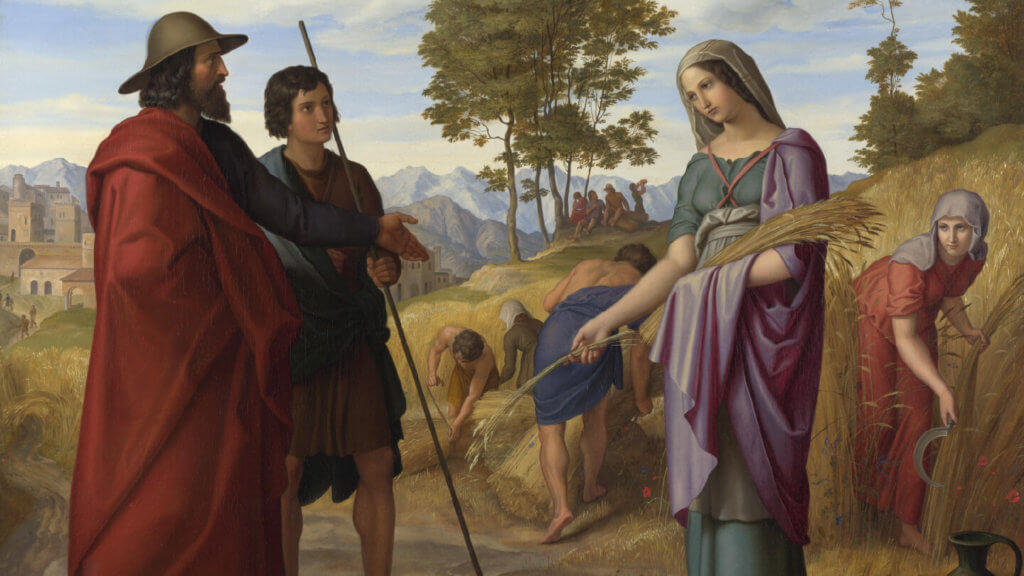Yehuda Bachana: We Are Called To Be A Flag [Bamidbar 2025]
This week we began reading the Book of Numbers, and we also marked the important and meaningful ‘Jerusalem Day’, which I see as a day of gratitude to God.
What Is Jerusalem Day?
We thank God for the great grace He shows the People of Israel.
We thank Him for the privilege to see the words of the prophets being fulfilled in our days and before our very eyes; or, like Psalm 122:3 describes Jerusalem with the words:
“Jerusalem—built as a city that is bound firmly together.”
The Six-Day War
Psalm 122:3 was fulfilled in 1967, when Israeli Paratroopers liberated East Jerusalem and reunited the City of Jerusalem. Until that year, we had no access to the eastern part of the city or to the Old City, which also meant that we couldn’t excavate there or uncover the secrets of ancient Jerusalem.
Only after the Six-Day War did we begin to re-explore the holy and beloved city of Jerusalem. As a result, we discovered answers to many questions, like:
- What was the size of Jerusalem during the Kingdom Era (the First Temple period)?
- Why did Jerusalem expand so tremendously and disproportionately to the Western Hill during the Divided Kingdom Era?
- Who fortified Jerusalem, and why?
As students of the Bible, we know the answers to these questions, but where is the proof?
The excavations that took place in the 1970’s provided evidence and answers to all of these questions.
The Broad Wall
Today I want to point you to one small and seemingly minor archeological site, which carries great importance. In fact, it’s a small section of the ‘Broad Wall,’ which is some 40 meters long, 7 meters wide, and located in the Cardo of the Jewish Quarter in Jerusalem’s Old City.
The Importance Of The Discovery
The discovery of this wall is important, because it sheds light on events that took place in Jerusalem during the reign of Hezekiah, King of Judah, during the 8th century BCE. King Hezekiah built the Broad Wall in preparation for the invasion of Sennacherib, King of the Neo-Assyrian Empire (705 BC-681 BC).
The reason for the expansion of Jerusalem is likely the destruction of the Kingdom of Israel (the Northern Kingdom), which caused a big wave of refugees (some of whom arrived in Judah and Jerusalem). Therefore, Jerusalem (like today) had to grow in order to receive the many new arrivals.
King Hezekiah
The Broad Wall dates back to Hezekiah’s time, who carried out various operations according to the Bible, which are all supported by archaeological evidence. This includes the storage of food in emergency warehouses, carving a protected water source (Hezekiah’s Tunnel, mentioned by Isaiah) in the City of David, and repairing and reinforcing the city walls (see: 2 Chronicles 32 and 2 Kings 18–19).
The Discovery Of The Broad Wall
The discovery of the Broad Wall was an emotional event that’s documented in the personal journal of Prof. Nahman Avigad (freely translated):
“Could it be that we found the wall? I was afraid to tell anyone, since it might turn out to be a false hope, and what a great disappointment that would be! So I spoke only with my closest team members, and we decided to keep the discovery secret. But as time went on, and the months passed, the excavation continued — and with great excitement, we discovered the wall!”
This wall brings us back to the Biblical stories, including Sennacherib’s Assyrian campaign and his attempt to capture Jerusalem from Hezekiah, King of Judah. Next to the wall, towers were discovered that were part of a sophisticated and impressive gate. I imagine Rabshakeh, the Field Commander of the Assyrian army, standing just outside the wall and overlooking the front of the gate as he delivers a speech in Hebrew that’s full of threats meant to demoralize the inhabitants of Jerusalem.
Then What Happened?
The outcome of the Assyrian attempt to capture Jerusalem is described twice, in 2 Kings and 2 Chronicles. We read that Jerusalem was saved as an angel struck the Assyrian camp with a plague that led to the defeat of their mighty army:
“And the Lord sent an angel, who annihilated all the fighting men and the commanders and officers in the camp of the Assyrian king. So he withdrew to his own land in disgrace. (...) So the Lord saved Hezekiah and the people of Jerusalem from the hand of Sennacherib king of Assyria and from the hand of all others. He took care of them on every side.” (2 Chronicles 32:21–22)
It’s important to emphasize that it’s impossible to read the Bible without also reading about the Land of Israel, which fills so many of its pages.
Today our prayer remains the same as the prayer of King Hezekiah and the Prophet Isaiah, that God will have mercy on us and save us from our enemies who rise up against us, time and again.
Flags
On Jerusalem Day, the city is decorated with flags of Jerusalem and Israel — and in our Torah portion, the concept of the ‘flag’ appears in several verses, which gives a strong military connotation. Numbers 1 ends with the formation of the camp, where each tribe rests and encamps under its tribal banner:
“The Israelites are to set up their tents by divisions, each of them in their own camp under their standard.” (Numbers 1:52)
Chapter 2 opens with a similar declaration, where we read that the Tribes of Israel encamped around the Tabernacle, each under its own flag. Then we read the numbers of each tribe, which again adds some military flavor:
“(…) his division numbers 74,600. The tribe of Issachar will camp next to them (...) his division numbers 54,400.” (verses 3-6)
Each of the Tribes of Israel are described in this same way..
Tribal Flag
Each tribe had a flag that represented it. Our rich Jewish tradition describes the designs of these flags. For example, Reuben’s flag was red with mandrakes on it, while Simeon’s flag was green with the City of Shechem. Then there was Levi’s flag with the breastplate of the High Priest on a red, white, and black background.
Even more importantly than the colors or images on the flags was the sense of belonging that the flags granted the people. These flags gave a sense of self-esteem, and the tribes waved their flags proudly.
The Flag of Israel
What’s the story and idea behind the flag of Israel? It’s perhaps best described by David Wolffsohn, the designer of the Israeli flag:
“At the command of our leader Herzl, I came to Basel to prepare for the first Zionist Congress. Among the many questions that occupied me was one... With what flag shall we decorate the Congress hall? What are its colors? After all, we have no flag.
This thought pained me greatly. A flag must be created. But what colors should we choose?
Then the idea struck me: We have a flag — white and blue. The tallit (prayer shawl) with which we wrap ourselves during prayer — this is our symbol. Let us remove the tallit from its case and unfurl it before Israel and the nations. I then ordered a blue and white flag with a Star of David drawn upon it — and thus was born our national flag.”
Simply put (but most meaningfully), our national flag is the image of a prayer shawl.
We’re Called To Be A Flag
As believers in Yeshua, we’re called to be a flag. We’re called to be a beacon and shine the light of Yeshua in this dark world, and draw people to faith in the living God. Similarly, and in the spirit of Yeshua’s words, our congregation reads these words from Matthew 5 every Hanukkah:
“You are the light of the world. A town built on a hill cannot be hidden (...) In the same way, let your light shine before others, that they may see your good deeds and glorify your Father in heaven.” (verses 14 and 16)
And so, we’re called to be kind and patient. To display love, joy, peace, and calmness. The New Testament commands us to be known for our gentleness and joy:
“Rejoice in the Lord always. I will say it again: Rejoice! Let your gentleness be evident to all. The Lord is near.” (Philippians 4:4-5)
How Do We Keep This Joy?
Yeshua has the power to fill us with joy.
Is faith in Yeshua like magic — meaning, does accepting Yeshua mean that I’ll automatically feel joy? In a certain way it does.
Let’s imagine someone who’s lost in the dark. He’s not joyful, but somewhat afraid or stressed. Then, the moment he finds the right path, this feeling immediately changes. He may not have reached his destination yet and still has to walk and make an effort—but his spirit is renewed, because he’s sure that he’s headed in the right direction.
That’s how we can imagine faith in Yeshua. The moment we discover Yeshua’s light and way of life, we’re filled with a renewed strength, enthusiasm, and joy. From that moment on, we still have to make an effort to faithfully live according to God’s Word. And yet, we’re not alone, Yeshua is our rock, our light, and our confidence; and perhaps most importantly, we know where we’re headed. Proudly, we raise the flag of faith and the flag of Messiah.
Please join us in prayer for:
Roeh Israel, our kehilla
- Every 28th of the Month, like This past Wednesday (May 28) is our congregational Day of Prayer for the believers of Jerusalem. We join in with other local congregations, which is a wonderful initiative! Join us, to cover our local congregations, elderly, families, singles, children, and leaders, as well as the war, soldiers and hostages in prayer.
- Lift up our founders, Joseph and Marcia Shulam, with their ongoing health struggles and Joseph’s care for Marcia.
- Continue to lift up Zvi and Batsheva, Yehudit’s ankles and wrist, thyroid and calcium-levels.
- Lift up our elderly including Ilana, Lea, Miriam and Antonina, with their individual health issues as they age.
- Pray for a miracle for Eitan’s health, and continue to intercede on behalf of Aharon’s life and his openness towards our Heavenly Father.
- Pray for Hadassah with her ongoing cancer journeys
- Lift up the healing of Y. after the surgery on his shoulder
Israel
Thanks for continuing to stand with Israel in prayer! Pray for mental and physical health, for our endurance and the joy of His salvation. For much unity and love.
- Pray for a complete restoration for the returned hostages (and their families), and pray without ceasing on behalf of the hostages who still remain in Gaza for a full 1,5 years, and for their loved ones.
IDF
Pray for the IDF-soldiers who guard our Northern border, and continue to defend against the attacks from Yemen and Gaza, as well as their operations to strengthen security in Judea and Samaria against the Iranian axis that has spread all around us.
- Pray especially for Nir, J. and A. who serve at the moment.
May we truly enter His peace and rest, this Shabbat.
Today we’ll end with the ancient blessing in honor of Jerusalem Day: “Next year in Jerusalem!”
Shabbat Shalom,
Yehuda and Lydia Bachana
Netivyah and the Roeh Israel congregation
Last News Update:
Things you might like:
Last Week's Torah Portion:




